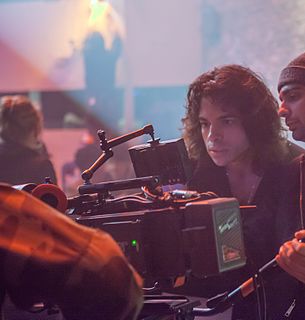A Quote by Estelle Parsons
For anyone with half a brain they can see that this play is about the human condition.
Related Quotes
A new study finds that women use their whole brain when listening and men only use half of their brain. You see, men use the other half of their brain to come up with excuses. I don't think women use their whole brain when listening. I think they use half of it and the other half is used to memorize what men are saying so they can use it against them 10 years later!
I met the guys at HeavyRoc through the drummer in St. Lucia, Nick Brown. He is Ben from The Knocks' cousin, and at the time we'd been doing some work together, but everything was still very much in the unsure developmental phase (even though I'd been in it for a year and a half). I told him that if he was going to play the music for anyone that he shouldn't say anything about it and should just play it and see if anyone says anything, and he did it one day at their studio and they loved it and got it touch.
The brain is really hard to see. The whole thing is very large - the human brain is several pounds in weight - but the connections between brain cells, known as synapses, are really tiny. They're nanoscale in dimension. So if you want to see how the cells of the brain are connected in networks, you have to see those connections, those synapses.
I want people to see the beauty of that condition through the eyes of the characters. In doing that, they can allow people who have the condition to be more accepting of it, and to be open about it. That would be a contribution to the people who have it, and considering that 38% of the Pulitzer Prize winning poets are Bipolar, to think about how much these individuals have contributed to the human spirit.
The human condition comprehends more than the condition under which life has been given to man. Men are conditioned beings because everything they come in contact with turns immediately into a condition of their existence. The world in which the vita activa spends itself consists of things produced by human activities; but the things that owe their existence exclusively to men nevertheless constantly condition their human makers.
One reaches through to the continents and oceans of the imagination, worlds able to sustain anyone who will but play, and then lets the play deepen and deepen until it is a reality that few would even dare to entertain...The human imagination is the holographic organ of the human body, and we don't 'imagine' anything. We simply see things so far away that there is no possibility of validating or invalidating their existence.




































